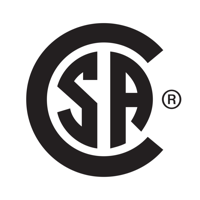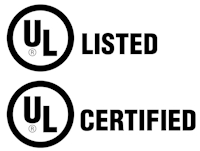What Is CSA Approved

Figure 1: CSA mark
CSA certification, issued by the Canadian Standards Association, is a mark of quality and safety. When a product bears the CSA-approved mark, it signifies that it has undergone rigorous testing for potential electrical hazards and inspection to ensure it meets the highest safety standards. This article explores CSA certification products and marks in detail, along with comparing them with the UL certification to assist the user in making an informed decision about which certification to choose for a product.
Table of contents
- CSA certification benefits
- Products that require CSA certification
- CSA certification requirements
- Different CSA marks
- CSA certification vs UL
- FAQs
CSA certification benefits
CSA standard ensures that a product is safe for use, having met strict safety standards. Obtaining CSA certification offers several key benefits:
- Enhanced market access: CSA certification allows manufacturers to access North American and international markets, as the CSA mark is widely recognized and accepted.
- Reduced liability: CSA certification helps manufacturers reduce the risk of product recalls, legal issues, and liability claims associated with safety and performance issues.
Products that require CSA certification
Products requiring CSA certification are particularly relevant in the electrical and electronics industry. Products such as wiring, electrical panels, and appliances often require CSA certification to ensure they meet electrical safety standards. CSA-approved equipment includes:
- Electrical equipment
- Gas appliances
- Industrial machinery
- Medical devices
- Plumbing fixtures
CSA certification requirements
To achieve CSA certification, manufacturers must adhere to specific requirements and guidelines established by the CSA Group. These requirements vary depending on the type of product and industry. The certification process typically involves:
- Product testing: The product is tested extensively to meet the applicable safety and performance standards. The testing process thoroughly examines every aspect of the product, including its design, materials, and performance.
- Inspection and documentation review: The products are inspected to ensure they are manufactured consistently according to the standards they were tested for. Manufacturers must provide comprehensive documentation, including design specifications, test reports, and manufacturing processes, to demonstrate compliance with CSA standards.
- Factory inspection: In some cases, CSA auditors may visit the manufacturer's facilities to assess production processes and ensure they align with certification requirements.
- Continuous compliance: CSA certification is not a one-time process. Manufacturers must commit to maintaining their products' quality and safety standards over time.
Different CSA marks
There are several types of CSA marks, each representing a different level or type of approval.
General CSA mark
A product displaying a simple CSA mark or logo (Figure 1) signifies that it has been tested and approved by CSA personnel according to Canadian standards. Alongside the CSA Mark, a class number or file number helps gather more information about the product from the comprehensive CSA database.
CSA/US mark

Figure 2: CSA/US mark
CSA/US mark indicates that the product has been tested by CSA personnel in Canada through an agreement with UL, ensuring it meets all American National Standards for safety and performance. These products are certified for use in the U.S. and are listed in accordance with the National Fire Protection Association (NFPA) Standard NFPA 70 and the National Electrical Code (NEC).
C/CSA/US mark

Figure 3: C/CSA/US mark
Sometimes, the CSA mark may have a 'C' on one end and a 'US' on the other. This means that the product was tested by CSA in Canada under an agreement with UL, and it meets standards for use in both the U.S. and Canada.
CSA certification vs UL
CSA and UL are recognized as Nationally Recognized Testing Laboratories (NRTLs) by the Occupational Safety and Health Administration (OSHA). UL and CSA standards test products against industry-recognized standards, including the Canadian Electrical Code (CEC) and the National Electrical Code (NEC). The primary distinction lies in their jurisdictional coverage, which is signified by different label acronyms, although many areas overlap.
For example, consider the UL and the CSA/US marks. Both labels indicate that the product is ready for use within the U.S. The only difference lies in the testing location; UL-labeled products are tested in the U.S., while CSA/US products are tested in Canada.
A UL certification applies specifically to the United States. While UL can carry out tests according to Canadian standards (C - UL) or international standards (ISO), the UL logo signifies that the product has been certified specifically for use in the U.S. market. This is a key distinction between the two certifications.
Deciding between CSA and UL certifications
Choose CSA certification if the product is intended for export because it has international recognition. On the other hand, if the product is sold only within North America, UL certification (and its Canadian equivalent, C – UL) could be the preferred option.
Regardless of the standard chosen for the products, it's essential that the product labels match the chosen certification. These labels must remain legible under the specified conditions, reinforcing the credibility and authenticity of the product's certification.

Figure 4: Common UL certification marks found on products
FAQs
What is the meaning of CSA approved?
CSA-approved means a product has been certified by the Canadian Standards Association (CSA), indicating it has been tested and meets the safety and performance standards set by this organization.
What is the cost of CSA certification?
The cost of obtaining CSA certification can vary significantly depending on several factors, including the type of product, the complexity of testing, and the extent of documentation required.
How long does CSA approval take?
The timeline for CSA approval can vary depending on the product and the complexity of the testing required. It can take anywhere from a few weeks to several months.



